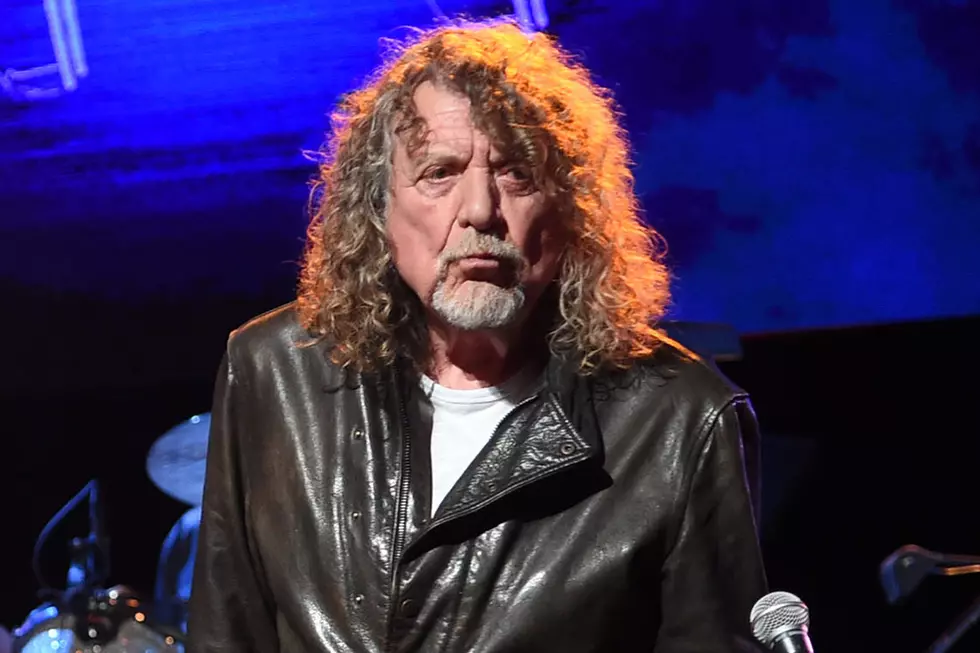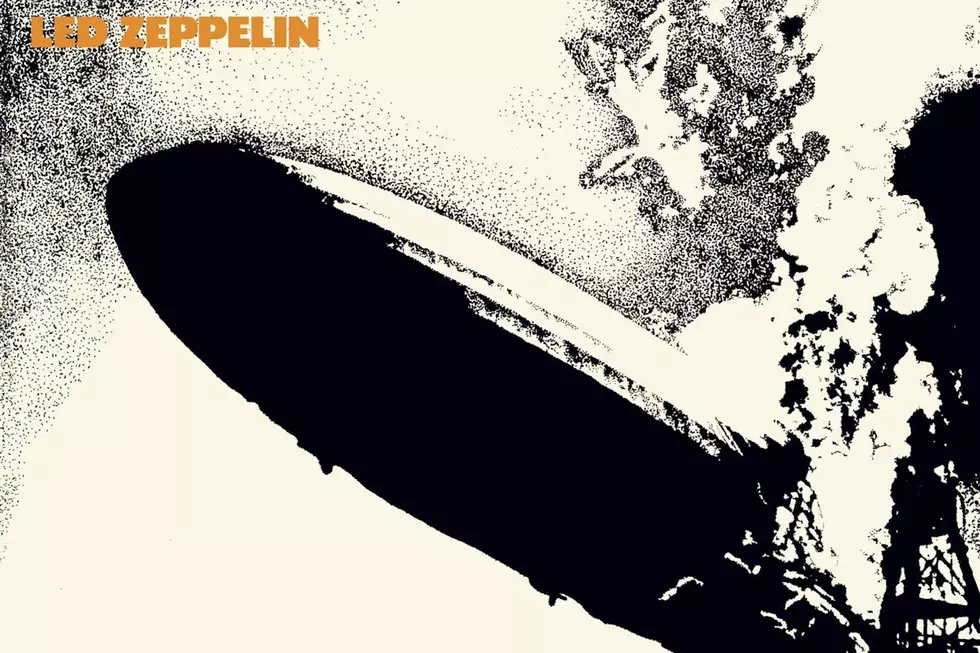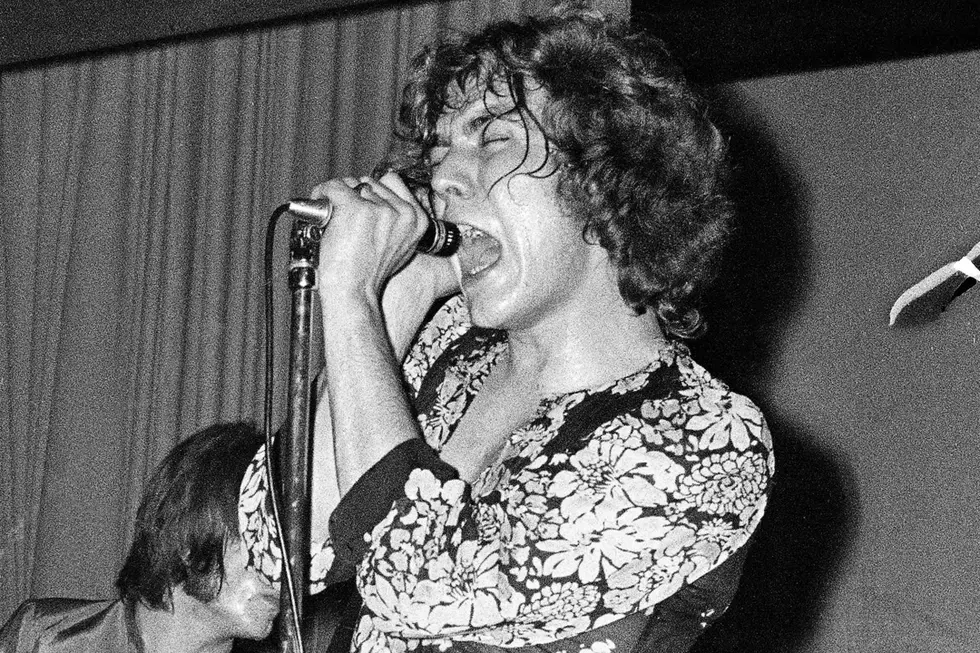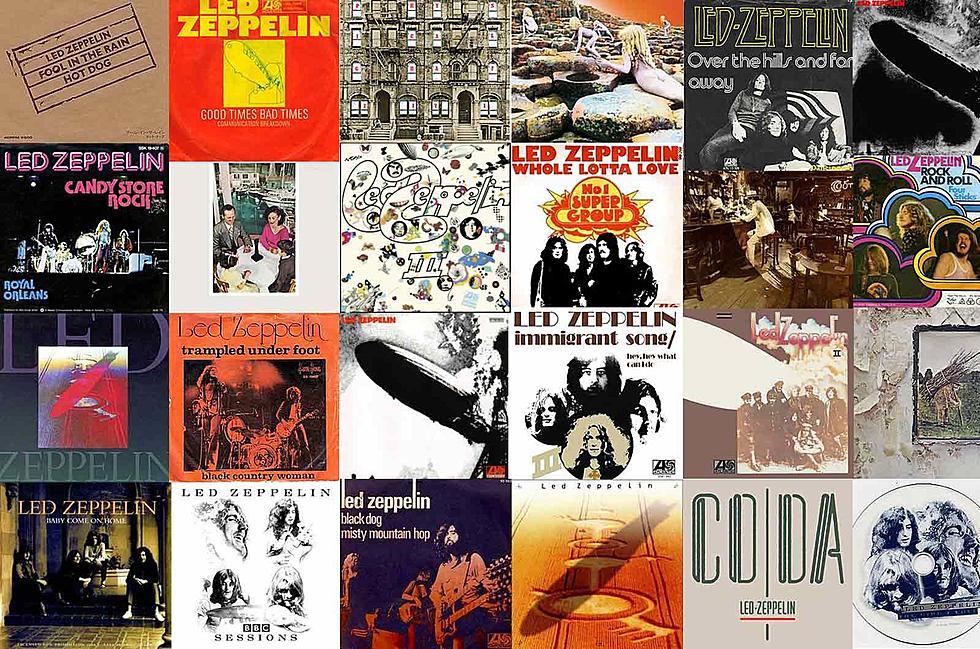
Bands That Led Zeppelin Should Consider Suing
Spirit's unsuccessful attempt to sue for plagiarism followed other charges of appropriation by Led Zeppelin, but what about when it's the other way around? Our collection of Bands That Led Zeppelin Should Consider Suing shows that this particular legal avenue runs very much two ways.
Sure, previous lawsuits forced the addition of folk singer Anne Bredon’s name to Zeppelin’s “Babe I’m Gonna Leave You,” and bluesman Willie Dixon's to both “Whole Lotta Love” and “I Can’t Quit You Baby.” And there were those – witnesses Jimmy Page and Robert Plant excluded, of course – who heard similarities between “Stairway to Heaven” and “Taurus” by the late Randy California’s band before a jury unanimously denied their motion in July 2016.
In between, however, plenty of groups could be charged with appropriating huge swaths of the Led Zeppelin legend, from their golden-god look to their distinctive sound. Obviously, no legal action has yet been taken against any of these acts. Still, as you'll see in this list of Bands That Led Zeppelin Should Consider Suing, perhaps some enterprising barrister should considering taking the case ...
Kingdom Come
Let's get this one out of the way: Everyone loved piling on Kingdom Come, whose successful 1988 eponymous debut boasted plenty of similarities to the works of Led Zeppelin – not least of whom was Jimmy Page himself. Heck, Gary Moore even joined in, releasing a song called “Led Clones” sung by Ozzy Osbourne. Kingdom Come's Lenny Wolf maintained, however, that he was much more influenced by AC/DC and the Beatles. You be the judge.
Great White
While '80s-era Los Angeles was teeming with hair-metal bands, Great White stood out because of their musical debt to Led Zeppelin. The band’s ever-changing rhythm section couldn't compare to John Bonham and John Paul Jones, of course, but Jack Russell was a soulful screecher capable of replicating Robert Plant’s piercing high notes and guitarist Mark Kendall delivered a bluesy versatility that set Great White's songs apart from peers like Motley Crue and Ratt.
Blue Murder
John Sykes acquired an impressive resume as a sideman working with Thin Lizzy, Tygers of Pan Tang and Whitesnake. Still, when the time came to lead Blue Murder, Sykes looked no further than Zeppelin for his primary inspiration. The power trio, completed by Tony Franklin and Carmine Appice, issued an eponymous debut packed with bombastic rockers that often descended directly from favorites like “Black Dog,” “When the Levee Breaks” or “Kashmir.”
Heart
As they rose to fame in Heart, sisters Nancy and Ann Wilson certainly showed an occasional affinity for Led Zeppelin-esque dynamics. Later, they made the connection more obvious by becoming avid performers of Zeppelin covers, including “Rock and Roll” and “The Battle of Evermore.” John Paul Jones then returned the gesture, producing a Heart LP in 1995.
Badlands
A jury might have expected Badlands to sound more like Black Sabbath. After all, singer Ray Gillen had worked with Sabbath, and guitarist Jake E. Lee with Ozzy Osbourne. Their late '80s collaboration as Badlands relied, instead, on the familiar Led Zeppelin template. That said, Lee’s rootsy tone and bluesy influences were welcome in an era dominated by synthesizers and glossy production values, while Gillen’s voice easily held its own.
Whitesnake
A hard rock legend in his own right, David Coverdale carved his name in ‘70s rock with Deep Purple before confirming his star status fronting blues-rockers Whitesnake. To younger audiences weaned on MTV, however, Coverdale is best remembered for cavorting with nubile models in music videos for '80s songs that often recycled and then amplified Zeppelin’s old tricks. Jimmy Page himself subsequently came calling for the Coverdale-Page project in 1993.
Fastway
Fastway was formed by Motorhead's “Fast” Eddie Clarke and UFO's Pete Way. They went in an entirely different direction, however, when Way left. New member Dave King's range and mannerisms put him squarely in the Plant school of vocal acrobatics, and that helped nudge Fastway’s sound toward ZOSO. Ex-Humble Pie drummer Jerry Shirley also gave the band’s first albums a certain Bonham-esque oomph.
Zebra
It's something of a stretch to include Zebra on our list of Bands That Led Zeppelin Should Consider Suing, since their eclectic early-'80s releases drew influences from multiple sources including hard rock, prog-rock, and even pop. Then again, Zeppelin constructed their diverse oeuvre in much the same way. It’s also a well-known fact that Zebra covered many Led Zeppelin songs during their unsigned club days. Finally, there's the obvious parallel with Randy Jackson’s shrill, melodic singing.
Rush
Although they quickly established a style (or several styles) all their own, Rush were card-carrying Led Zeppelin disciples on their eponymous debut from 1974. Tracks like “Finding My Way,” “Need Some Love” and “Here Again” feature Plant-ian inflections in Geddy Lee’s sharp squawk, and plenty of Page-isms in Alex Lifeson’s guitar strangling. It's proof once again that even some of the greatest bands carefully studied Zeppelin’s curriculum before “finding their way.”
Wolfmother
Of all the retro-rock combos, arguably none applied the Zeppelin imprimatur as liberally as Wolfmother. Sure, Black Sabbath, the Beatles and a wealth of stoner and garage rock ingredients also figure in Wolfmother's ‘70s-worshipping gumbo, but it’s probably Zep that stands out the most. That said, Wolfmother hasn’t endured nearly as many complaints as their predecessors, perhaps suggesting that Led Zeppelin’s impact is so inescapable that it’s no longer worth complaining about. We'll let the lawyers decide.
More From Ultimate Classic Rock









